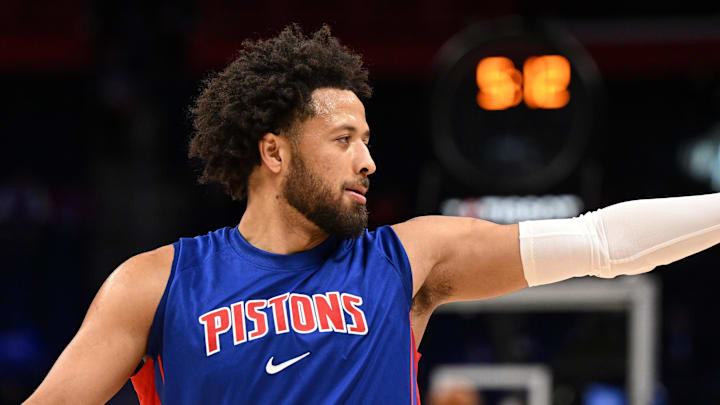A lifestyle rooted in purpose
Cade Cunningham’s journey into the NBA is well documented—he was the No. 1 overall draft pick, a rising star for the Detroit Pistons and a burgeoning leader on and off the court. But one dimension of his rise that often draws attention is his commitment to a plant‑based diet, which he began during his senior year at Montverde Academy and has carried all the way into his professional career. His inspiration came from seeing his brother make the switch, and from that moment on, he committed to eating for “fuel and not for taste,” as he puts it.
Why he made the switch
Cunningham says the decision to adopt a plant‑based lifestyle was about optimizing his body for performance.
"“It has always been about finding what is best for my body, and what would make me the best basketball player. Plant‑based has always been that for me, and it has been that way for a long time,” Cunningham told reporters."Cade Cunningham
He realized early that conventional athlete diets full of animal proteins and processed foods weren’t the only path to strength, stamina and recovery. Instead, he chose to focus on nutrient‑rich plants, legumes, and alternatives to traditional protein sources, working closely with the Pistons’ nutrition team to ensure he was meeting elite‐level nutritional demands: sufficient carbohydrates for energy, complete proteins for muscle repair and growth, and overall wellness.
How it translates to his game
What stands out about Cunningham’s diet isn’t just the fact that he avoids animal products—it’s the mindset he brings: food is performance, not indulgence. He describes his meals not as “what tastes good” but “what fuels the engine.” That type of thinking reflects the discipline he brings to the court. A guard of his size and skill needs to maintain strength, agility, endurance and health through an 82‑game season and beyond. His nutrition plan complements the strength training, conditioning, film work and recovery routines with the Pistons, helping him stay consistent, avoid crash cycles and be available.
Brand partnerships and public advocacy
Cunningham’s commitment also extends beyond personal performance. He has leveraged his platform to promote plant‑based eating and alternative food brands. He became an ambassador for a prominent plant‑based substitute product, and participated in public events. Recently teaming up with a plant‑based foods company at the Detroit Marathon’s after‑party where he met fans and handed out samples of plant‑based sliders and nuggets. His visibility underscores his belief that top‑level athletes can thrive without relying on traditional diets heavy in animal proteins.
The significance for athlete nutrition and culture
Cunningham’s case adds weight to a broader discussion about athlete nutrition, recovery and longevity. For decades, the “meat‑heavy” athlete diet model was accepted as the only way to build muscle, stamina and performance. But his success, size and productivity while eating plant‑based challenge that paradigm. It shows that when nutrition is planned, supported and aligned with performance goals, athletes can choose alternative routes and still perform at the highest levels. That’s especially refreshing in a sport like the NBA where constant travel, high physical demands and tight schedules leave little margin for error. Sometimes it's not always about what everyone else is doing and more so about what is best for you. If Cunningham fell into this trap who knows if he could've ever tried this diet and who knows of he would be the same player he currently is.
Final thoughts
Cade Cunningham exemplifies the idea that what you eat matters as much as how you train. His plant‑based diet is more than a badge, it’s an informed decision rooted in performance, wellness and long‑term health. As he continues to lead the Pistons’ rebuild, his nutrition choices serve as both personal strategy and public message: elite athletes can chart unconventional paths and still reach the top. For young athletes, fans and even seasoned pros, his example highlights that optimizing one’s body isn’t just about what you lift or how fast you run, it’s also about how you nourish.
